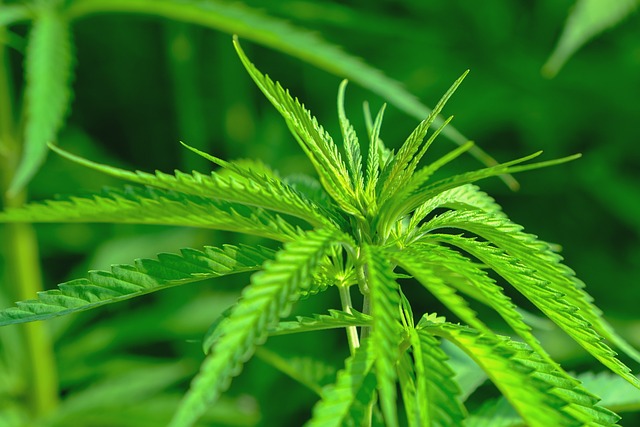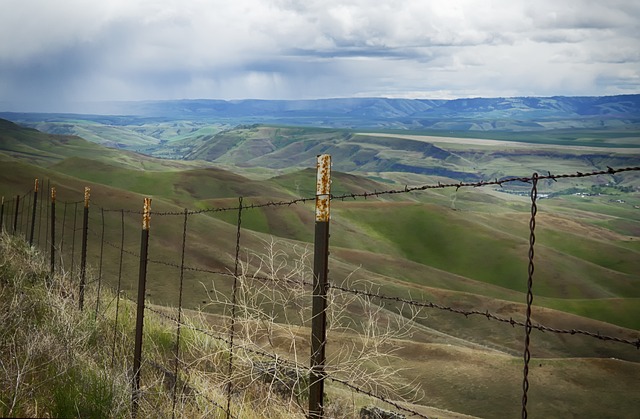Best THC-A Strains for Anxiety: Navigating the Potential Benefits and Considerations
Introduction
Anxiety disorders are a prevalent mental health concern, affecting millions of people worldwide. In recent years, there has been a growing interest in alternative therapeutic approaches to manage anxiety, and one such area of focus is the use of specific THC-A (Tetrahydrocannabinol-Acid) strains. This article aims to delve into the world of THC-A as a potential tool for anxiety relief, exploring its definition, benefits, global impact, economic implications, technological innovations, regulatory landscape, and future prospects. By examining these aspects, readers will gain valuable insights into the role of THC-A in addressing anxiety and its potential within the broader healthcare system.
Understanding Best THC-A Strains for Anxiety
Definition:
Best THC-A strains for anxiety refer to cannabis varieties or products that are selectively bred or engineered to contain higher levels of THC-A, a non-psychoactive cannabinoid known for its anxiolytic (anxiety-reducing) properties. These strains offer a promising natural approach to managing anxiety symptoms without the mind-altering effects associated with traditional delta-9-tetrahydrocannabinol (THC).
Core Components and Mechanism:
THC-A is one of over 100 cannabinoids found in cannabis plants. Unlike THC, which binds directly to the brain’s CB1 receptors, THC-A does not exhibit psychoactive effects but interacts with other cannabinoid receptors, such as CB2. This interaction may contribute to its calming effects on the nervous system, helping to reduce anxiety and promote relaxation.
Historically, cannabis has been used for centuries in various cultures for its medicinal properties, including treating anxiety and stress. Modern scientific research has validated many of these traditional uses, leading to a renewed interest in harnessing the power of specific THC-A strains for mental health conditions.
Significance:
The exploration of THC-A as a treatment for anxiety is significant for several reasons. Firstly, it offers a potential alternative to conventional anxiety medications, which can have side effects and may not suit everyone. Secondly, it aligns with the growing trend towards natural, plant-based remedies in healthcare. Lastly, as more regions legalize cannabis for medical use, access to THC-A therapies becomes increasingly viable.
Global Impact and Trends
THC-A’s impact on anxiety management is a global phenomenon, with varying degrees of acceptance and research across different countries. Here’s an overview:
| Region | Legal Status | Research Activity | Noted Successes |
|---|---|---|---|
| North America (USA, Canada) | Legal for medical use in most states/provinces | High; numerous studies on THC-A and anxiety | Early adopters with promising results from patient trials |
| Europe (Germany, UK, Netherlands) | Varies by country; mostly legal for medical purposes | Moderate; ongoing clinical trials and research partnerships | https://www.google.com stories shared among healthcare providers |
| Australia | Legal for certain medical uses | Increasing; growing interest in cannabis medicine | Limited case studies, but positive patient feedback |
| Asia (Israel, Thailand) | Medical cannabis is gaining traction | Growing; early-stage research with potential for future expansion | Initial findings suggest effectiveness in specific strains |
These trends indicate a global shift towards recognizing the therapeutic potential of THC-A. As more countries legalize cannabis, research will likely intensify, leading to better understanding and access to these strains.
Economic Considerations
The economic implications of best THC-A strains for anxiety are multifaceted:
Market Dynamics:
The global medical cannabis market is projected to reach USD 73.6 billion by 2027, with the THC segment accounting for a significant share. The growing demand for natural treatments and expanding legal frameworks drive this growth. Within this market, the anxiety-focused segment is expected to experience substantial expansion as consumers seek alternative solutions.
Investment Patterns:
Investor interest in cannabis companies, especially those focused on research and development, has been steadily increasing. Startups and established pharmaceutical companies are investing heavily in THC-A strain cultivation, extraction, and formulation technologies. This trend reflects the market’s potential and the belief in THC-A’s therapeutic value.
Economic Impact:
The economic impact of best THC-A strains for anxiety is expected to be substantial, contributing to job creation in agriculture, manufacturing, and healthcare. Additionally, as more people access natural anxiety relief through these strains, there may be a decrease in the financial burden associated with conventional treatments, such as prescription medications.
Technological Advancements
Technological innovations have played a crucial role in unlocking THC-A’s potential for anxiety management:
-
Advanced Cultivation Techniques: Selectively breeding cannabis plants to enhance THC-A content while maintaining balanced cannabinoid profiles has become a specialized art. Techniques like clonal propagation and controlled environment agriculture ensure consistent, high-quality strains.
-
Precision Extraction: State-of-the-art extraction methods allow for the isolation of pure THC-A or its derivatives, ensuring potency and purity in final products. These techniques include supercritical CO2 extraction and solvent-free processes.
-
Pharmaceutical Formulations: Researchers are developing various THC-A formulations, such as capsules, tinctures, and transdermal patches, offering precise dosing and convenience for patients.
-
Digital Health Solutions: Mobile apps and digital platforms are emerging to educate consumers about THC-A strains, assist in dosing, and connect users with healthcare professionals, enhancing patient management and outcomes.
Regulatory Landscape
The regulatory environment surrounding best THC-A strains for anxiety varies widely:
-
In many countries, cannabis remains strictly regulated or entirely illegal, hindering research and access to these strains for medical purposes.
-
Some regions have legalized medical cannabis with specific restrictions on THC content, limiting the availability of high-THC-A strains.
-
A growing number of jurisdictions are embracing the potential of cannabis medicine, allowing for controlled access to THC-A products under medical supervision.
Navigating these regulations is essential for researchers, healthcare providers, and patients to ensure safe and effective use of THC-A therapies.
Future Prospects and Conclusion
The future of best THC-A strains for anxiety looks promising, with several key areas of focus:
-
Clinical Research: Well-designed clinical trials are crucial to establishing the efficacy and safety of THC-A strains in treating anxiety disorders. Ongoing research should provide more definitive answers regarding dosage, administration methods, and strain selection.
-
Patient Access: As regulations evolve, ensuring patient access to these therapies becomes essential. Healthcare providers must be educated about THC-A’s potential benefits, and insurance coverage for related treatments should be explored.
-
Public Awareness: Increasing public understanding of THC-A’s therapeutic properties can foster informed decision-making regarding anxiety management options.
In conclusion, best THC-A strains offer a promising natural approach to managing anxiety, with significant global interest and growing scientific evidence. As the legal landscape continues to shift and technological advancements mature, these strains have the potential to become valuable tools in the mental healthcare arsenal, providing new hope for individuals seeking alternative relief from anxiety disorders.









